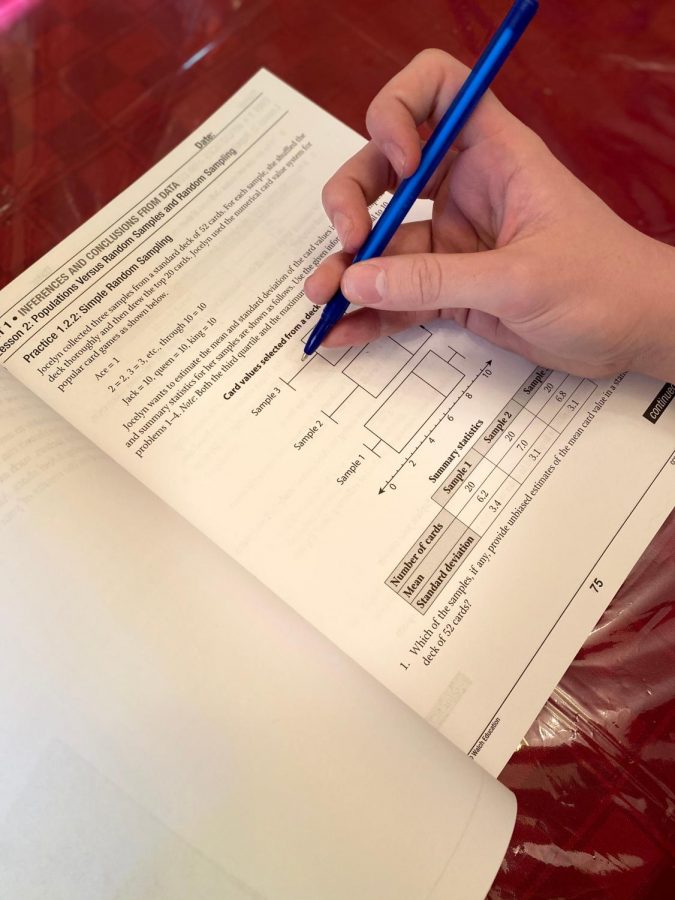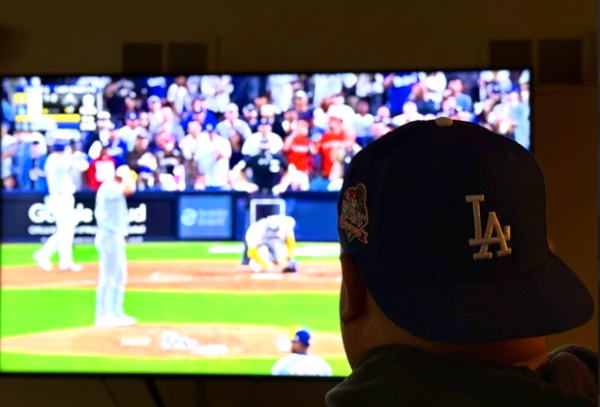Natural Math Wizards: Real or a Myth?
Is being good at math in your genetics, or does this talent come from something more?
Student frustration in math mostly derives from pressure from other students who seem to have a “mathematical gift.” Are some people just lucky to be good at math, or is there a solution to becoming better at math is a concept that is debated in school settings.
January 23, 2020
We all know that one person who always knows the answer to the difficult math questions and is going to college for something math-related. For those who struggle with math, they always wonder how in the world they excel at something that terrifies them so deeply. Therefore, is math a skill that is formulated through genetics, or is it a natural gift that a small number of people have? This ultimately creates high levels of frustration among students who believe this ‘gene’ was not passed down to them, which lead to the formation of the possible myth of math wizards in the educational system.
In the novel “Outliers: The Story of Success”, Malcolm Gladwell incorporates real-life experiments to state his opinion on the subject of math wizards. In one study, the students were given a long and tedious questionnaire of math questions, where some students took time and effort to solve them, while the others gave up when the problems increased in difficulty.
Though we often believe math to be a kind of innate trait that only a few lucky people have, it turns out that there is more to being good at math than always knowing the answers. In fact, it is due to the incredible patience and persistence that reflects the positive outcome of someone’s math performance.
Excelling in math ultimately lies the person’s hands, and whether or not they are willing to dedicate their time to continue to make progress in this skill. Patience, persistence, and dedication can help all students overcome the obstacles of math, which demolishes the myth that math is a skill that only a select people have in terms of genetics.
Lindsey Gottardo analyzes the myth of math geniuses. “I think that only some people excel at math because they have an interest in it, and therefore give up when it gets difficult. However, I think its important that schools tell students that there is no such thing as math geniuses in genetics, and that hard work and perseverance can make anything happen” says Gottardo.
Ms. Marshall, one of the Mathletes sponsors, gives her insight on tendencies students have who struggle with math. “Some students hesitate to begin solving problems. Some won’t share their ideas in class or even ask questions. Some hate math if they feel they aren’t good at it. Still, some physically slouch down in their seats so the teacher won’t call on them.” Marshall also points out that the students who are skilled in math are “eager to come to class and often do their homework. Some always have their hands raised to they can answer a question. Some like to help others solve problems. Most take a great deal of pride in the work they do, especially when successful.”
So how did this division of students occur? Marshall does believe that some people have a natural math skill. However, this difference between students is because some are willing to make and learn from their mistakes to succeed, which is why the term “natural math wizards” was used in schools. It’s not that some people are naturally good at math because their parents were, but if they are willing to put effort into learning math is what makes them a math genius. “Paying attention, doing your homework, asking for help, and practicing will help you succeed in math,” says Marshall.







